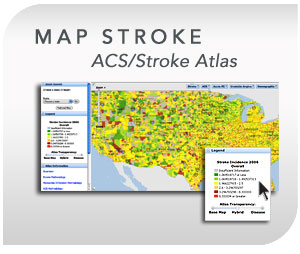Inability to consent does not diminish the desirability of stroke thrombolysis
Stroke Reports Thursday, July 17th, 2014Wiley: 9 JUL 2014
Objective
Some have argued that physicians should not presume to make thrombolysis decisions for incapacitated patients with acute ischemic stroke because the risks and benefits of thrombolysis involve deeply personal values. We evaluated the influence of the inability to consent and of personal health-related values on older adults’ emergency treatment preferences for both ischemic stroke and cardiac arrest.
Methods
A total of 2,154 US adults age ≥50 years read vignettes in which they had either suffered an acute ischemic stroke and could be treated with thrombolysis, or had suffered a sudden cardiac arrest and could be treated with cardiopulmonary resuscitation. Participants were then asked (1) whether they would want the intervention, or (2) whether they would want to be given the intervention even if their informed consent could not be obtained. We elicited health-related values as predictors of these judgments. Read More




























